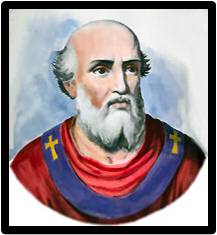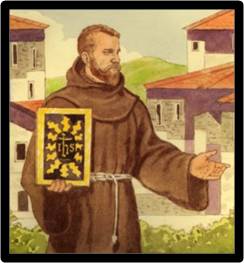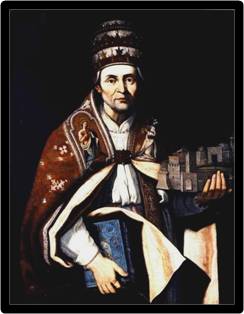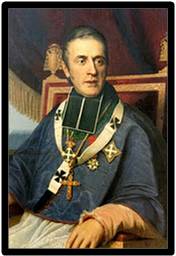MAY 18 - ST. JOHN I

John I was a priest of Rome who became the fifty-third pope. At that time, Italy’s ruler, Theodoric the Goth, was an Arian. (The Arians did not believe that Jesus is God.)
When Theodoric became Emperor, he let the Catholics live in peace at the start of his reign. But later, he changed and became rude and suspicious of everyone. He imagined that everyone was plotting against him.
After a while, he believed the whole world was out to get his throne and his power. The one person who most certainly did not want either was Pope John I.
Theodoric then got Pope John involved in his political problems. The Emperor Theodoric was having trouble with Emperor Justin I of Constantinople. He heard that Justin was being too hard on the Arians in the east. Theodoric sent a group of people to make peace with Justin.
The party was headed by Pope John I. Emperor Justin was very happy to meet the pope and received him and his companions with rejoicing. Justin willingly agreed to change his harsh policy. Pope John’s mission was successful.
But Emperor Theodoric was not pleased. He now imagined that Pope John and Justin I were against him. When the pope was returning to Rome, he got as far as Ravenna, Theodoric’s capital. There Pope John was kidnapped and thrown into prison by Theodoric’s soldiers. He was left to die of thirst and starvation in 526.



